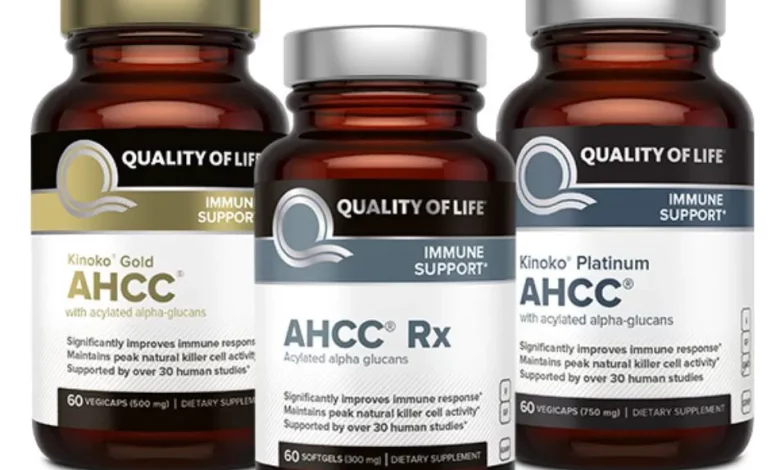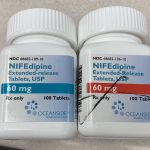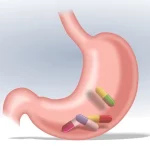Why Take AHCC On Empty Stomach? (4 Reasons)

AHCC stands for Active Hexose Correlated Compound. It is a proprietary extract derived from several types of mushrooms, including shiitake. AHCC is commonly used as a dietary supplement and is believed to have various health benefits.
AHCC has been studied for its potential effects on the immune system. It is thought to enhance the activity of certain immune cells, such as natural killer cells and macrophages, which play a crucial role in the body’s defense against pathogens. By boosting immune function, AHCC may support overall immune health and help the body fight infections.
In addition to its immunomodulatory effects, AHCC has also been investigated for its potential anti-inflammatory, antioxidant, and anti-cancer properties. Some research suggests that AHCC may have a positive impact on conditions such as viral infections, liver diseases, autoimmune disorders, and certain types of cancer. However, more studies are needed to fully understand its efficacy and mechanisms of action in these areas.
Here are some of the benefits that have been suggested, although it’s important to note that further research is needed to confirm these effects:
1. Immune system support: AHCC is believed to enhance the activity of certain immune cells, such as natural killer cells and macrophages, which play a crucial role in the body’s defense against infections. By boosting immune function, AHCC may help support overall immune health and improve the body’s ability to fight off pathogens.
2. Antiviral properties: Some studies have indicated that AHCC may have antiviral effects against various viruses, including the influenza virus, human papillomavirus (HPV), and hepatitis C virus (HCV). It is thought to inhibit viral replication and stimulate immune responses against viral infections.
3. Potential cancer-fighting properties: Research suggests that AHCC may have anticancer effects. It has been studied in relation to various types of cancer, including liver, breast, colon, and prostate cancers. AHCC is thought to modulate immune responses, reduce tumor growth, and enhance the effectiveness of chemotherapy.
4. Liver health support: AHCC has been investigated for its potential benefits in liver health. It may help protect liver cells from damage caused by toxins or certain medications. Studies have shown that AHCC could improve liver function in individuals with liver diseases, such as hepatitis C and hepatitis B.
5. Anti-inflammatory and antioxidant effects: AHCC may possess anti-inflammatory and antioxidant properties, which could help reduce oxidative stress and inflammation in the body. This may have implications for various conditions associated with chronic inflammation, such as cardiovascular diseases, arthritis, and metabolic disorders.
How is Active Hexose Correlated Compound Taken
Active Hexose Correlated Compound (AHCC) is typically taken as an oral supplement. The specific dosage and administration instructions may vary depending on the brand and formulation of AHCC, as well as the intended use. It is important to carefully follow the instructions provided by the manufacturer or consult with a healthcare professional for personalized guidance.
AHCC is available in capsule or tablet form, and the typical recommended dosage can range from 1 to 3 grams per day. However, dosages may vary depending on the individual’s age, health condition, and other factors. Some healthcare professionals may recommend higher or lower doses based on specific needs.
Here are some general guidelines for taking AHCC:
1. Read the product label: Carefully read and follow the instructions provided on the AHCC product label. This will provide specific dosage recommendations and any additional instructions or precautions.
2. Timing: AHCC is often taken with meals, but it’s important to follow the specific instructions provided by the manufacturer or healthcare professional. Some supplements may have specific timing requirements, such as taking them before or after meals.
3. Duration: The duration of AHCC supplementation can vary depending on the purpose and health condition. Some people may take it for short periods, such as during an acute illness, while others may use it for longer durations as a general immune support supplement. Consult with a healthcare professional for guidance on the appropriate duration for your specific needs.
4. Personalized advice: It is always recommended to consult with a healthcare professional before starting AHCC or any other new supplement. They can provide personalized advice based on your individual health condition, medications, and potential interactions.
Remember, individual responses to AHCC may vary, and it’s important to be consistent with your dosage and follow the recommended guidelines.
Why take AHCC on an empty stomach?
Taking AHCC on an empty stomach is often recommended for a few reasons:
1. Absorption: Some dietary supplements, including AHCC, may have better absorption when taken on an empty stomach. Taking AHCC without food allows for quicker and more efficient absorption in the digestive system, which can enhance its bioavailability and effectiveness.
2. Avoid interference: Certain foods, particularly those high in fiber or fat, can slow down the absorption of supplements and may interfere with the uptake of AHCC. Taking AHCC on an empty stomach helps to minimize potential interference from food, ensuring that the body can absorb and utilize the compound optimally.
3. Timing with other medications/supplements: If you are taking AHCC along with other medications or supplements, taking it on an empty stomach may help prevent potential interactions or interference between different compounds. This allows each substance to be absorbed and processed independently.
It’s important to note that while taking AHCC on an empty stomach may have potential benefits, it is always advisable to follow the specific instructions provided by the manufacturer or consult with a healthcare professional.
What happens if I take AHCC with food?
Taking AHCC with food is generally considered safe and should not cause any significant adverse effects. However, there are a few factors to consider:
1. Absorption: Taking AHCC with food may slightly affect its absorption rate. Some components of food, particularly those high in fiber or fat, can slow down the absorption of supplements. This means that the absorption and availability of AHCC may be slightly reduced compared to taking it on an empty stomach. However, the overall impact on effectiveness is likely to be minimal.
2. Digestive comfort: Some individuals may experience better digestive comfort when taking AHCC with food. AHCC can sometimes cause gastrointestinal discomfort, such as mild stomach upset or nausea, in sensitive individuals. Taking it with food can help alleviate such symptoms in some cases.
3. Interactions: If you are taking AHCC along with other medications or supplements, taking it with food may help minimize potential interactions or interference between different compounds. Food can act as a buffer and may help prevent any potential interactions that could occur when multiple substances are taken together.
In summary, taking AHCC with food is generally considered safe and may help improve digestive comfort. However, if you are specifically instructed by the manufacturer or a healthcare professional to take AHCC on an empty stomach for optimal absorption, it is advisable to follow those instructions. If you have any concerns or questions, it’s always best to consult with a healthcare professional for personalized advice based on your individual circumstances.





